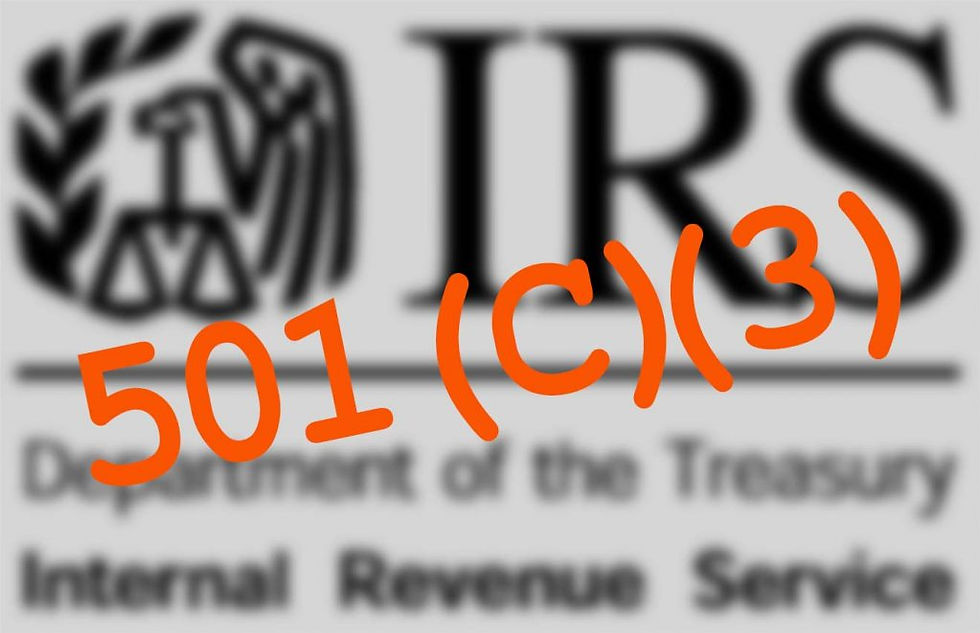Why Some 501c3 Applications Get Denied and How to Avoid Common Pitfalls?
- EZ 501c3
- Aug 9, 2023
- 3 min read
Becoming a recognized 501c3 tax-exempt organization is a pivotal milestone for nonprofits. Achieving this status not only grants legitimacy but also provides essential tax benefits and access to grants. It enhances credibility and opens doors to potential funding opportunities.
However, the road to securing this coveted 501c3 approval is fraught with lots of challenges, and numerous applications facing denial each year. Understanding the reasons behind these denials is crucial to ensure your nonprofit's success.
So, here in this blog post, we will explore the common pitfalls that lead to 501c3 application rejections and provide invaluable insights on how to avoid them.

Why Some 501c3 Application Processes Get Denied?
There are several reasons behind 501c3 application rejection, check the following:
Incomplete or Inaccurate Documentation:
One of the primary reasons for 501c3 application process denials is submitting incomplete or inaccurate documentation. The Internal Revenue Service or IRS requires a comprehensive application package, and any missing or incorrect information can lead to immediate rejection. So, always make sure that you have double-checked all forms, attachments and supporting documents before submitting your application.
Lack of Clarity in Purpose and Activities:
A well-defined charitable purpose and activities are critical for obtaining 501c3 status. Some applications fail to clearly articulate their non-profit’s mission and how they plan to achieve it. Vagueness in describing your organization’s purpose can lead to confusion and subsequent denial.
Engaging in Unrelated Business Activities:
501c3 non-profit organizations are allowed to engage in limited business activities as long as they primarily serve their charitable mission. However, some non-profits get denied for engaging in substantial unrelated business activities, as these can jeopardize their tax-exempt status.
Insufficient Public Benefit:
To qualify for 501c3 tax-exempt status, your non-profit must demonstrate that its activities will primarily benefit the public rather than private individuals or groups. Failure to prove sufficient public benefit can lead to application rejection.
Lack of Compliance with Legal Requirements:
Non-profits must adhere to various legal requirements, both at the federal and state levels. Failing to comply with these regulations, such as having the appropriate corporate structure or board governance, can result in denial.
How to Avoid Common Pitfalls While Opting for 501c3 Application Process?
Opting for the 501c3 application process is a crucial step for nonprofits seeking tax-exempt status and official recognition. To avoid common pitfalls during this process, follow these essential tips:

Conduct Thorough Research:
Before embarking on the 501c3 application process, conduct thorough research on the IRS guidelines, requirements, and other relevant laws. Familiarize yourself with Form 1023 (Application for Recognition of Exemption) or Form 1023-EZ and seek legal counsel if needed.
Craft a Clear and Specific Mission Statement:
A compelling mission statement should clearly define your nonprofit's purpose, target population, and the intended impact. Avoid vague language and ensure your mission aligns with the IRS's charitable purposes.
Develop a Comprehensive Business Plan:
Prepare a detailed business plan that outlines your nonprofit's goals, objectives, activities, and projected budgets. A well-structured business plan demonstrates your organization's seriousness and viability.
Seek Professional Guidance:
Engage the services of experienced professionals, such as lawyers or nonprofit consultants, who are well-versed in the 501c3 application process. Their expertise can help you navigate complex legal requirements and ensure your application is well-prepared.
Review and Double-Check:
Carefully review all documents and information before submitting your application. Ensure that all required attachments are included, and the information provided is accurate and consistent.
Stay Transparent and Accountable:
Transparency and accountability are essential for any nonprofit seeking 501c3 status. Maintain accurate records, financial statements, and meeting minutes to demonstrate your commitment to good governance.
Be Patient and Persistent:
The 501c3 application process can be time-consuming, and it may take several months to receive a response from the IRS. Be patient throughout the process and follow up if necessary.

Conclusion:
Securing 501c3 status is a significant accomplishment that provides nonprofits with credibility, tax benefits, and access to valuable resources. To avoid the common pitfalls that lead to application denials, nonprofits must ensure their documentation is complete and accurate, have a clear and specific mission statement, demonstrate a commitment to public benefit, and comply with legal requirements.
Conducting thorough research, seeking professional guidance, and being transparent and patient throughout the application process are critical steps to increase the chances of approval. Remember that each denial is an opportunity to learn and improve your application. By avoiding common pitfalls and staying committed to your organization's mission, you can increase the likelihood of achieving 501c3 status and furthering your nonprofit's positive impact on the community.



Comments